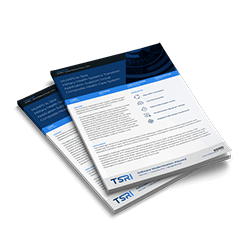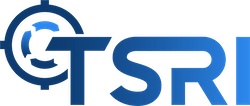Displaying items by tag: cobol
AWS Blog Featured Post: Automated Refactoring of a U.S. Department of Defense Mainframe to AWS
United States Air Force SBSS ILS-S COBOL to Java on AWS Modernization
A major component of the system is 54 years old, written in COBOL, and provides retail-level business logic. The component runs on mainframes that have proven to be extremely difficult to change and manage, and the DoD needed to modernize the component to drive down operating costs and move to an open platform, while retaining all functionality....
United States Air Force - Unisys COBOL to Java ILS-S SBSS Logistics System Modernization
The U.S. Air Force uses the Integrated Logistics System – Supply (ILS-S), of which the Standard Base Supply System (SBSS) is a major part, as a mainstay of their supply chain. The SBSS program includes over 1.5 million lines of COBOL, as well as smaller numbers of C and Assembly, all of which are to be transformed into Java.
- Customer & Integrator: US Air Force
- Source & Target Language: COBOL to Java
- Lines of Code: 1.5 million
- Duration: 11 months
-
A TSRI Approach to Modernized Application Testing
Modernization of code demands a high degree of precision. It is absolutely critical that the reengineered software performs in the same manner as the original. This requires two things: a rigorous approach to code refactoring based upon tried principles which retain the underlying logic; and a well-planned and consistent program of testing to ensure that logic is preserved and improvements do not in any way alter the function of the code. Testing is vital. Companies need to be certain that their modernized critical software will perform according to exact the same rules as the original.
Code Modernization: Focus on COBOL
Enormous amounts of COBOL code have been created and relied upon for decades. It really is the bedrock of early computing. But now, ancient COBOL systems are challenged because the original assumptions under which the code was written are no longer valid. COBOL was designed as a robust business language to handle batch oriented database operations in an ACID environment. Today, these vital systems, including financial, security, transportation, and healthcare solutions continue to run. But access is changed, processing requirements have changed, and the availability of coders to understand, maintain, and augment the systems diminishes year-by-year.
COBOL to C++ - Premera Blue Cross
Premera Blue Cross required the assessment, transformation and re-factoring of its existing Automated Document Assembly System (ADAS). ADAS was written in WANG COBOL and self generated WANG COBOL programs tailoring health care booklets for specific customer needs. TSRI was selected to assess, transform, and re-factor the WANG COBOL code, migrating the system into a C++ Windows NT environment with full functional equivalency.
 |
Customer: Premera Blue Cross Source & Target Language: COBOL to C++ Lines of Code: Nearly 50,000 Duration: 4 Months Services: Code Transformation, Automated Refactoring, Testing and Implementation Support, Transformation Blueprint®
|
COBOL & C++ to Java - US Air Force / REMIS Technical Refresh
The Reliability & Maintainability Information System (REMIS) is a key component of the Air Force Depot Maintenance System. Ten years after the successful modernization of REMIS in 2004, the US Air Force reached back out to TSRI to modernize the rest of the system as well as take the C++ we already produced to Java. The project was delivered on time and under budget by almost half a million dollars.
- Customer & Integrator: US Air Force
- Source & Target Language: COBOL to C++
- Lines of Code: 1.1 million
- Duration: 7 months
-
COBOL, Assembly, JCL and Fortr. to Java Metlife/ Alico Japan
The original LifeComm application was written by CSC for Alico of Japan. Following the acquisition of Alico by MetLife, it was determined that the LifeComm application would require modernization. To support this, MetLife first needed to better understand this legacy application. MetLife engaged TSRI to provide an Application Blueprint® of the LifeComm application.
 |
|
Micro Focus COBOL to C & C++ - Sprint Billing
When Sprint Nextel Corporation (now T-Mobile) was ready to begin a modernization and cloud migration project for their billing system, they naturally turned to Amdocs, who then selected TSRI to complete the modernization of the billing system successfully. The billing system that Sprint wanted to modernize was written in over 5 million lines of Micro Focus rehosted Pro*COBOL and Pro*C code. Operational costs to maintain the system were consuming critical budget and hampering the organization’s capacity to enhance and scale the system to meet growing operational requirements.
 |
|
COBOL to C++ - NEA / Administrative Systems
The National Endowments for the Arts (NEA) Grants Management System (GMS), Financial Management System (FMIS), and Automated Panel Bank System (APBS) were unique one-of-a-kind 27-year old legacy systems written in Wang VS COBOL, running on a WANG VS Operating System, and using a WANG VS DMS database. TSRI was engaged to transform these systems into C++ and completed the project successfully in 7 months.
 |
Customer: National Endowments for the Arts Source & Target Language: COBOL to C++ Lines of Code: 656,000 Duration: 5 months Services: Code Transformation, Automated Refactoring, System Integration Support, Testing Support, Transformation Blueprint ®
|
- cobol
- C++
- National Endowments of the Arts
- Code Transformation
- Automatic Refactoring
- transformation blueprint
- COBOL to C++
- Generated COBOL
- Financial System
- Software Modernization
- Software Code Transformation
- Legacy System
- modernization
- migration
- DMS Database
- sql
- Microsoft SQL Server
- isam
- Legacy Architecture
- SQL Server
- MS SQL
COBOL to C++ - STG Inc. - WSMIS-MICAP
As part of the Logistics Management System, the Weapon System Management Information System (WSMIS) is responsible for tracking combat capability and impending parts problems. The system was well regarded during Desert Storm for its ability to expedite repair or procurement of critical items. However this legacy COBOL system requires modernization to continue to fulfill its mission.
 |
Customer: STG Inc. Source & Target Language: COBOL to C++ Lines of Code: 39,654 Duration: 4 months Services: Code Transformation, Automated Refactoring, Database Transformation, Testing and Implementation Support, Transformation Blueprint®
|
- C++
- COBOL to C++
- Code Transformation
- automated refactoring
- Database Transformation
- Testing and Implementation
- transformation blueprint
- Software code
- modernization
- migration
- US Air Force
- military
- cobol
- jcl
- batch
- Oracle 9i Database
- oracle
- database
- Windows Based
- Flat Files
- mainframe
- architecture
- amdahl

